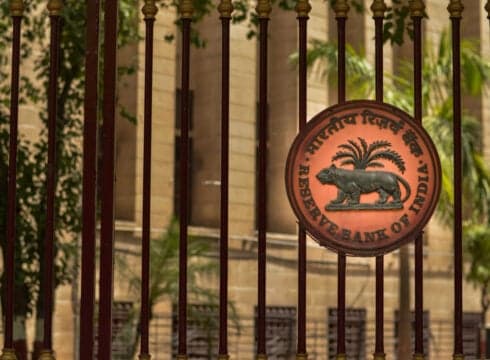MeitY has been tasked with ensuring that only the whitelisted apps are available for download on the Google Play Store and the Apple App Store
The move comes after a meeting chaired by Finance Minister Nirmala Sitharaman on Thursday (September 8) on loan apps
A large-scale probe is underway currently, involving multiple agencies and ministries to curb these illegal loan apps
Inc42 Daily Brief
Stay Ahead With Daily News & Analysis on India’s Tech & Startup Economy
The Ministry of Electronics and Information Technology (MeitY) along with the Reserve Bank of India (RBI), has been tasked to ensure that only the whitelisted loan apps are available for download on the Google Play Store and the Apple App Store.
At the September 8 meeting, Union Finance Minister Nirmala Sitharaman directed the RBI to create a whitelist of loan apps by assessing and approving the apps that follow the digital lending guidelines released last month.
In August, Google noted that it has removed more than 2,000 loan apps from its Play Store since January 2022. It is safe to assume that more will follow suit after the RBI publishes its whitelist. However, there are no indications of a timeline as of now.
Apart from the whitelist, the RBI has been charged with ensuring that the ‘mule/rented’ accounts are not used for money laundering and reviewing or cancelling dormant non-banking financial institutions (NBFCs) to avoid their misuse.
New Delhi has been aggressively suppressing the threat offered by the illegal loan apps that have been rampant, particularly in Tier-2+ cities of the country where financial education is still lacking.
These illegal loan apps target low-income groups, offering them lines of credit at exorbitant interest rates and high processing fees. Further, these apps employ predatory recovery methods including criminal intimidation and blackmail.
Additionally, the Enforcement Directorate (ED) alleges that many of these apps have backers based in China and these apps remit the proceeds of crime to Chinese owners.
A large-scale probe is underway currently, involving multiple agencies and ministries to curb these illegal apps.
The ED is running an investigation into the modus operandi of these apps. In particular, the agency is tracking the flow of money, which includes receiving payments and issuing loans to customers and allegedly remitting the profits to backers abroad.
In that regard, the ED is investigating almost all of the crypto exchanges active in India and multiple big-name payments enablers. Last month, it was widely reported that the agency is looking at 10 crypto exchanges in India for allegedly helping instant loan apps launder over INR 1,000 Cr. The ED has already conducted searches at the premises of Vauld, WazirX and Coinswitch Kuber to find connections with the loan apps.
While earlier reports suggested some of the crypto exchanges got clean chits from the agency, ED sources told Inc42 that was not the case.
At the same time, ED searched the premises of six companies, including Paytm, Cashfree Payments, and Razorpay to investigate the links between payments aggregators and loan apps.
It was alleged by the agency that the loan apps partner with defunct NBFCs. The latter not only supplies the former with the paperwork they require to conduct lending business in India but also creates virtual merchant accounts with payment aggregators for smooth operations.
The government also introduced digital lending guidelines last month to create a regulatory environment to protect customers from predatory loan apps.
{{#name}}{{name}}{{/name}}{{^name}}-{{/name}}
{{#description}}{{description}}...{{/description}}{{^description}}-{{/description}}
Note: We at Inc42 take our ethics very seriously. More information about it can be found here.


